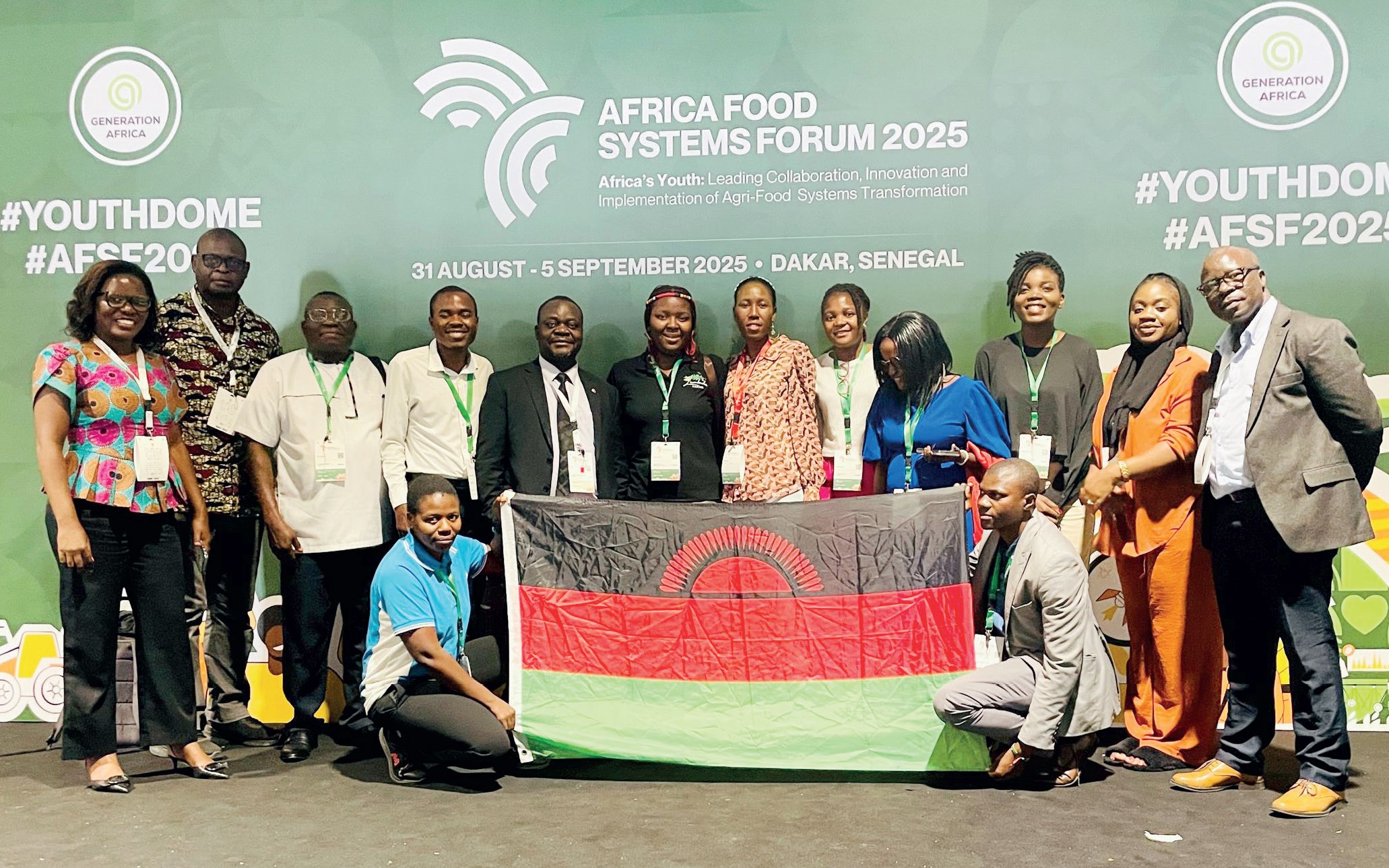By Jack McBrams
Copyright mwnation

Forget the stereotype of farming as backbreaking, outdated work.
For Malawi’s new generation of entrepreneurs, agriculture is fast becoming a stage for innovation, climate solutions and job creation.
At the Africa Food Systems Forum 2025 held last week in Dakar, Senegal, Daniel Chibwe and Taonga Nyirenda, showing Malawi’s agricultural transformation is already being rewritten by those under 30.
Chibwe, 27, is the founder of Mlatho Farms, a climate-smart enterprise in Mchinji that blends livestock with vegetable production. He also runs a permaculture awareness training programme to spread sustainable practices like compost-making and soil regeneration.
“My biggest takeaway here has been resilience,” he said after networking sessions at the forum’s Youth Dome. “We learned that opportunities like pitch competitions are tough, but with the knowledge from incubation programmes, we can secure capital and grow. Support is coming for the youth in agriculture—though slowly—but we just have to keep pushing.”
For Chibwe, agriculture is both a personal mission and a national necessity.
“People often say farming is dirty, but it is the backbone of Malawi’s economy,” he says. “As agripreneurs, we employ ourselves and others. If more young people take it seriously, we can cut unemployment and even export processed food.”
SeedBiz founder Nyirenda tells a similar story with a twist. Her company transforms farm waste into insect-based animal feed and organic fertiliser while training women and the youth to adopt new practices.
“The forum reminded me that SeedBiz is part of something much bigger,” she says. “We’re not just a Malawian business — we are part of a continental movement to feed Africa sustainably. Our goal is to produce tonnes of feed and fertiliser every year.”
Nyirenda says she cannot do this alone.
“Training others and sharing knowledge is how we create resilient systems. Youth innovation, when scaled, has the power to change African agriculture,” he says.
The forum shined a light on young innovators.
However, experts say the energy of agripreneurs like Chibwe and Nyirenda must be matched with resources and policy support.
“Young people are producing food, creating exports and searching for jobs,” said Alliance for Green Revolution in Africa country director Eluphy Nyirenda. “Agriculture can give them all three, but only if we make it attractive through innovation, technology, and access to finance.”
Government officials echoed that view.
Principal Secretary for Irrigation Geofrey Mamba said the flagship Malawi 2063 strategy will succeed or fail depending on the youth.
“Young people have the energy, the ICT skills, and the ideas we need. We must scale up their work so that hunger becomes history and Malawi becomes a net exporter of agricultural products,” he says.
But as Andrew Jamali of the National Planning Commission warns, ambition is not enough.
“The youth were consulted in designing Malawi 2063 and they will implement it. But we must close the financing gaps. Without capital, markets, and infrastructure, good ideas risk dying before they scale,” he says.
At the forum, Chibwe and Taonga stood among hundreds of African peers pitching business models and exchanging ideas. Their stories illustrate the spectrum of innovation bubbling across Malawi’s farms — from integrated farming systems to insect-based feed production.
Both entrepreneurs left the Senagalese capital with renewed determination.
“I will go back to Mchinji and take my farming more seriously, and encourage others to do the same. The opportunities are real if we keep at it,” says Chibwe.
Myirenda echoed that sentiment. “Africa already has the solutions,” she said. “We just need to believe in them, invest in them, and persist.”
As the Africa Food Systems Forum closed, the message was unmistakable: the blueprint for food security is already in the hands of Africa’s youth. For Malawi, where two-thirds of the population is under 35, investing in agripreneurs like Chibwe and Nyirenda may be the surest way to turn vision into reality by 2063.



